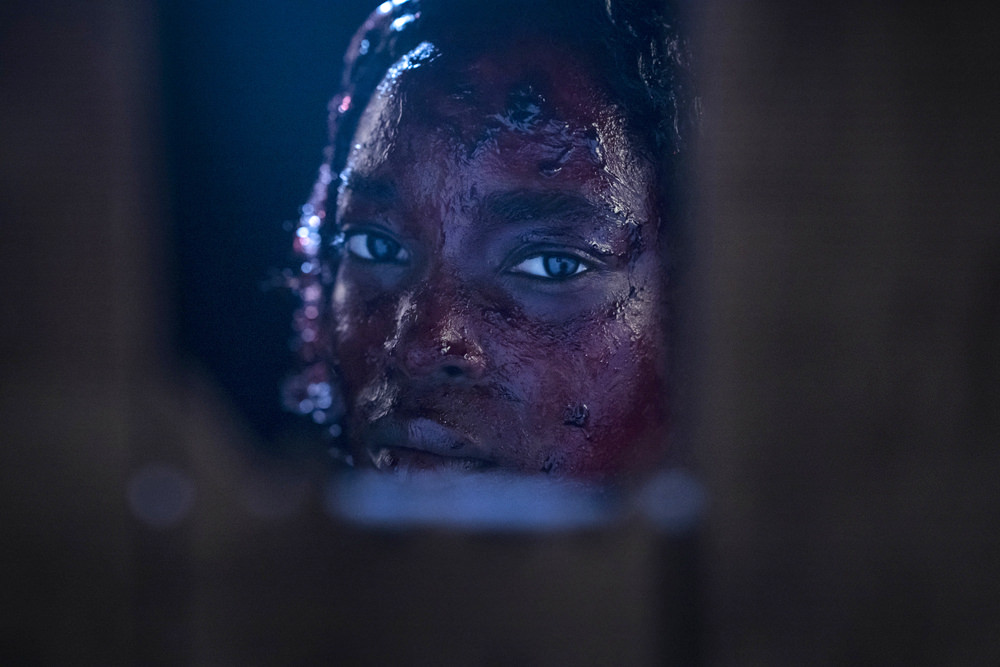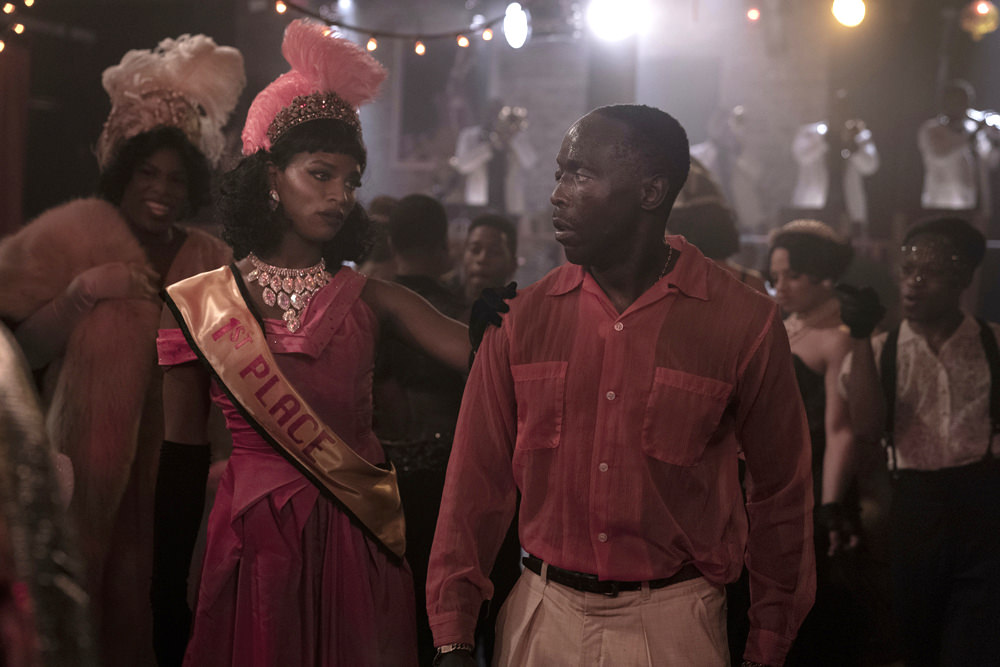
This one didn’t go down well. In fact, we were so unsettled by this episode that we had to sit with our feelings for a good while in order to work our way through them. Even now, we feel like we have to note with every observation that as white men, we may not have the tools to accurately assess parts of this episode. Not unrelated: we have a distinct aversion – revulsion, really – to body horror. So as two white guys who can’t handle scenes of human bodies being mutilated and don’t have the life experiences to truly understand Ruby’s actions this episode and the exhausted rage that underlies them, we guess what we’re trying to say here is: punctuate all of the following with a massive asterisk.
There’s no denying that Lovecraft Country is trying to accomplish a lot by threading a number of historical, metaphorical and thematic strands through one needle. Blending supernatural horror tropes with racism and then deepening the stories with explorations of African-American history and displays of Black culture makes for a heady mix, but it doesn’t always blend as well as it could. On the surface (pun unintended), we can say that blending body horror with the history of Black people who passed for white is a pretty brilliant concept, but the results were confusing to us, with a message that didn’t resonate as well as it might have.
What we don’t get is Ruby’s actions and reactions throughout the episode. – and again, we fully admit the nuances may have escaped us because we’re white men writing about this. The show has done a good job of depicting her frustrations with white people, her exhaustion and disillusionment with being denied the things that she wants. She is given two lines to explain her decision and in typical Ruby fashion, they’re cutting, smart, and show us a woman who’s had too many disappointments in her life to list. The first is her response to William – or rather, “William” – when he asked why she didn’t take his money: “I enjoyed my entire day using the only currency I needed: whiteness.” The second came as a more explicit response to the question of why she’d go through the horror of transformation: “I don’t know what is more difficult — being colored or being a woman. Most days I’m happy to be both, but the world keeps interrupting. And I am SICK of being interrupted.”

We understand these sentiments; we recognize the validity of them without having experienced the things that led Ruby to say them. As a way of explaining why she would choose to live as a white woman, they work, even though it’s hard for us to accept that Ruby – possibly the only character in the show who truly knows herself and sees the world through a veil of practicality – would so willingly give up everything that makes her who she is. We suppose we’re more confused than anything else. We can understand Ruby’s reasons for taking William’s offer (to a point), but we think the script didn’t do a good enough job of bridging the gap between the horror of her transformation and her near-immediate willingness to try it again. What is the point of depicting her body transformation in the most horrifying, painful, and disgusting manner possible if you’re going to spend the rest of the episode showing her going through it again and again, willingly? It almost feels like the script was written without knowing how the transformations were eventually going to be depicted onscreen. On the one hand, it’s sobering to think a woman like Ruby would put herself through that much hell to live life as a white woman. On the other hand, they started playing the transformations as vaguely comedic affairs; sitcom moments of Ruby wackily trying not to be discovered by her white boss or co-workers as she wrenched and bulged and literally tore herself apart.
This wasn’t the only issue we had with hard-to-reconcile tonal shifts. We’re just not sure how to take Ruby’s harassment of the only Black employee under her charge, or the way she humiliated her and subjected her to a raft of micro-aggressions by forcing her to take her white co-workers out on the South Side as if they were going on safari. And while her revenge against her white boss was understandably brutal (if extremely hard to watch), we have a hard time reconciling her rage against this man for attempting to rape a Black woman with her somewhat comedic annoyed response to the revelation that William was actually Christina. Not to put too fine a point on it, but how is what Christina did to Ruby not seen as a form of sexual assault? Maybe next week Ruby will attempt to attack Christine for what she did to her, but it seems to us like Ruby came off pretty resigned to the whole mess. Like we said, we think there was more than enough groundwork laid with Ruby’s character to explain why she would want the things she wanted this episode, but not nearly enough to explain why she did the things she did.

We had similar issues with Montrose’s storyline this episode. While we’d normally be thrilled to see Shangela and Monet X Change making cameos in an episode depicting Black drag balls of the 1950s, it’s exceedingly difficult for us to feel any sympathy for Montrose or joy over his apparent self-acceptance when the last thing we saw him do was slit the neck of an intersex Indigenous person. We’ve got to say, there are some rather difficult undertones to a queer man joyously accepting his queerness among the gender non-conforming while escaping any real retribution for his murderous actions against one of them. As with the Ruby storyline, we feel like we can appreciate the journey the character’s on, but we have a really hard time with the implications and the things left unsaid in the script. We’ll wait to see how the rest of this plays out, but even after writing our way through our feelings on this one, this episode still doesn’t quite sit well with us.
[Photo Credit: Eli Joshua Ade/HBO]
Venice Film Festival: Cate Blanchett Shows Her Support in Tibi Next Post:
Serena Williams Returns To Star In Stuart Weitzman’s Fall 2020 Campaign
Please review our Community Guidelines before posting a comment. Thank you!



